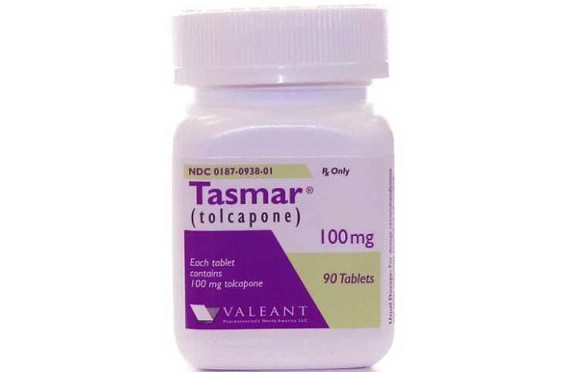Parkinson Drug Found to Be Able to Inhibit Hospital-Associated Bacterium Pseudomonas Aeruginosa
Nikhil Prasad Fact checked by:Thailand Medical News Team Nov 27, 2025 3 months, 4 days, 22 hours, 31 minutes ago
Medical News: A Surprising Old Drug with New Infection Fighting Potential
A widely used Parkinson’s disease medication may offer hospitals a powerful new weapon against one of the world’s most dangerous superbugs. In a discovery that could reshape future infection treatments, scientists found that tolcapone, a long-approved drug, can block a key protein used by the hospital-associated bacterium Pseudomonas aeruginosa. This
Medical News report highlights how researchers from the Helmholtz Institute for Pharmaceutical Research Saarland, the Helmholtz Center for Infection Research, Saarland University, and CERMAV in Grenoble uncovered this unexpected effect and why it matters for global health.
 Researchers find Parkinson drug tolcapone can block a key protein used by a major hospital superbug.
How the Superbug Attacks the Human Body
Researchers find Parkinson drug tolcapone can block a key protein used by a major hospital superbug.
How the Superbug Attacks the Human Body
Pseudomonas aeruginosa is classified by the World Health Organization as a critical-priority pathogen because it causes serious lung, wound, urinary tract, and bloodstream infections, especially in hospital patients and people with weakened immune systems. The germ uses a specialized sugar-binding protein called LecA to latch onto human cells, invade tissues, and create thick biofilms. These biofilms act like protective shields, making the bacteria extremely hard to eliminate with antibiotics or immune defenses. When LecA is blocked, the germ loses much of its ability to infect the body, making it far easier to treat.
Why Tolcapone Caught Scientists Attention
Researchers had previously noticed that certain catechol-based molecules could attach weakly to LecA. Tolcapone, a catechol-containing drug used for Parkinson’s disease, turned out to be far more effective than expected. Detailed tests showed that tolcapone binds to LecA in a precise, clearly defined manner rather than through vague or non-specific interactions. This gave the research team confidence that the drug could be repurposed as a virulence blocker—a type of agent that disarms bacteria without killing them directly, lowering their ability to cause disease while reducing the pressure that leads to antibiotic resistance.
Testing Thousands of Potential LecA Blockers
Using the structural insights gained from crystal-analysis of the LecA-tolcapone complex, the team screened more than 3200 compounds from Roche’s drug library. Dozens of related molecules were found to be even more potent than tolcapone, some matching the strength of traditional sugar-based LecA inhibitors that scientists have relied on for years. Importantly, several candidates showed strong and stable interactions with LecA, making them promising starting points for new infection-fighting drugs that could help overcome global antimicrobial resistance.
Promising Path Toward Future Treatments
The researchers believe the most effective molecules can be further improved to create a new class of antivirulence drugs for patients battling persistent Pseudomonas infections. Becau
se these compounds do not kill bacteria outright but instead block their ability to attach and form biofilms, they may help prevent the rapid development of resistance. More laboratory and animal studies are planned to refine the best candidates and evaluate how they can be combined with existing antibiotics.
Conclusion
This discovery demonstrates how an older medication can reveal completely new therapeutic potential when scientists explore its molecular interactions in detail. By uncovering how tolcapone and its analogues block the LecA protein, researchers have opened a path toward safer and more effective treatments for stubborn hospital infections. As antibiotic resistance continues to rise worldwide, innovation in antivirulence strategies like this could play a vital role in protecting vulnerable patients and slowing the emergence of resilient superbugs.
The study findings were published in the peer reviewed journal: Angewandte Chemie International Edition
https://onlinelibrary.wiley.com/doi/10.1002/anie.202508864
For the latest on Drug Repurposing, keep on logging to Thailand
Medical News.
Read Also:
https://www.thailandmedical.news/articles/med-news
